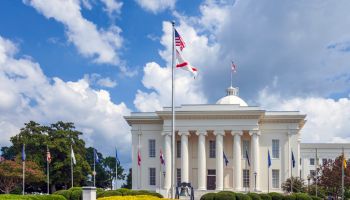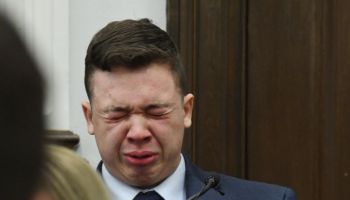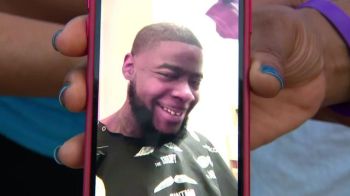NEW ORLEANS — Intent on showing firm command of the deepening crisis in the Gulf of Mexico, President Barack Obama flew to coastal Louisiana Friday for his second in-person update on the country’s most devastating oil spill.
Criticism of Obama is rising as crude continues to gush out of the leak 39 days after the oil rig exploded and sank. Amid fears the tragedy crippling the Gulf region’s wildlife and economy could soon also engulf his presidency, Obama has launched a campaign to step up public engagement and directly confront the public’s anger.
A day earlier, he held a rare White House news conference to address the matter, saying “I take responsibility” for handling what is now considered the biggest oil spill in U.S. history.
Text continues after gallery …
On Friday, he interrupted a Memorial Day weekend stay with his family at their Chicago home for the Gulf visit, with his first stop a beach south of New Orleans where protective booms have been set up to keep oil from washing ashore. The president was then traveling to the U.S. Coast Guard Station in nearby Grand Isle, La., to attend a briefing by Adm. Thad Allen of the Coast Guard, who is overseeing the spill response for the federal government. Obama was being joined there by the governors of Louisiana, Florida and Alabama. He was spending about three hours in the region.
“I think he needs to see the folks working on the beach with the cleanup,” Allen said Friday morning on CBS’ “Early Show.” ”I think it’s a real, real tough challenge, especially in the remote areas where you have marshlands involved and you can’t always get there easily and the surveillance is difficult.”
The oil rig leased by BP exploded April 20 and later sank, killing 11 people and releasing millions of gallons of crude oil into the Gulf. There is deep frustration along the coast, increasingly felt in the country at large as well, at the inability of BP and the government to stop the massive spillage of oil into the water.
BP PLC is using what is called a “top kill” procedure to try to stop the leak by pumping in heavy mud. If it doesn’t work, something BP says will be known with a couple days, Obama’s political problems will only compound.
On Thursday, Obama acknowledged his administration could have done a better job on several fronts. They included misjudging the industry’s ability to handle a worst-case scenario, not moving sooner to end “cozy and sometimes corrupt” relations between the oil industry and government regulators, and not getting a better estimate on the amount of oil gushing from the broken well.
He spoke in sometimes personal terms about his ownership of the crisis.
“I take responsibility. It is my job to make sure that everything is done to shut this down,” Obama said. “My job right now is just to make sure everybody in the Gulf understands: This is what I wake up to in the morning, and this is what I go to bed at night thinking about. The spill.”
He also announced a series of new restrictions on oil drilling projects. And the first political casualty of the spill came Thursday when Elizabeth Birnbaum, the head of the Minerals Management Service that oversees offshore drilling, resigned under pressure.
Some of those suffering the effects of the oil that is soiling birds and darkening beaches along the coast had mixed feelings about whether Obama should even come.
“He’ll have a better idea of what he needs to do or get other people to do,” said Donald Lefort, 41, a convenience store clerk in Venice, La., which has become a staging area for efforts to fight the oil.
Larry Freman, 72, who was cleaning up around his vacation home on Grand Isle’s main drag, which usually is packed with tourists this close to Memorial Day, said Obama should stay home.
“I think he’s wasting his time coming here,” the oil business veteran said.
RELATED STORIES
OPINION: 4 Ways Obama Can Keep Oil Spill From Consuming His Presidency
“Top Kill” Method Of Plugging Spill Appears To Be Working















